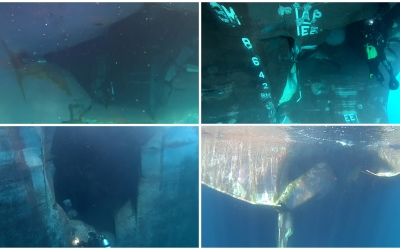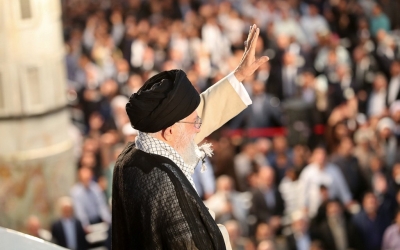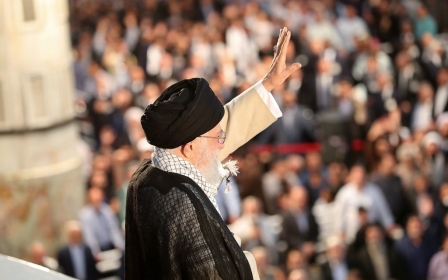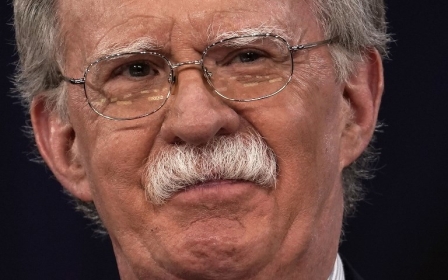US Centcom commander says American forces face 'imminent' threat from Iran
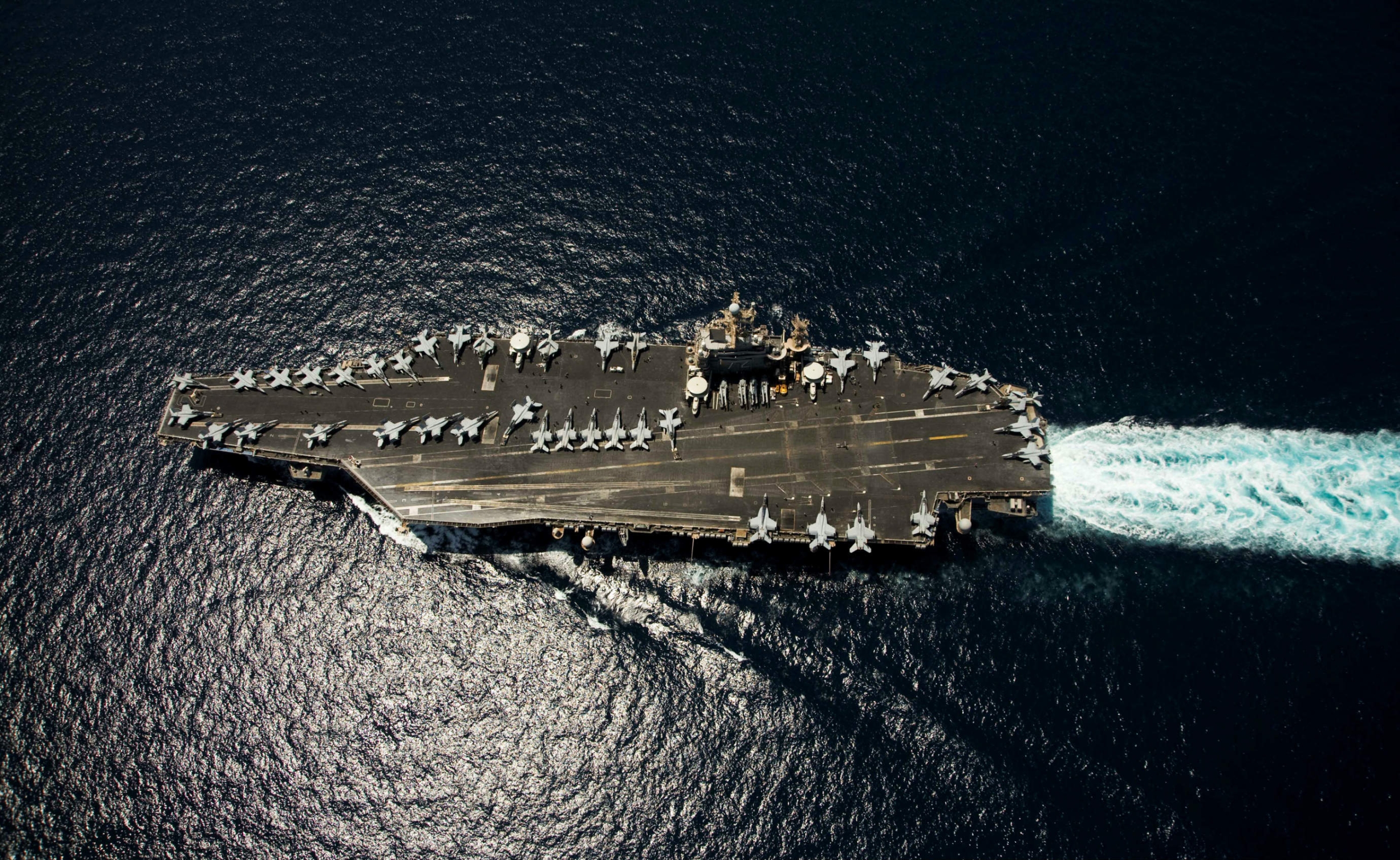
The top commander of the US military in the Middle East has said he believes Iran or its proxies may facilitate an attack on US forces or their allies at any moment.
"I think the threat is imminent," Marine General Frank McKenzie told the US broadcaster NBC News on Thursday.
New MEE newsletter: Jerusalem Dispatch
Sign up to get the latest insights and analysis on Israel-Palestine, alongside Turkey Unpacked and other MEE newsletters
"We continually evaluate our force posture in the region," he added during the interview in Baghdad.
US officials, citing intelligence reports, said in early May that Iran may be planning attacks on US troops in the Middle East.
US National Security Adviser John Bolton then announced that Washington was deploying a naval strike group to the Gulf to send a "clear and unmistakable message to the Iranian regime".
The following week, two Saudi oil tankers, an Emirati vessel and a Norwegian tanker were damaged off the coast of Fujairah, UAE.
Late last month, Bolton said during a visit to Abu Dhabi that Iran was "almost certainly" behind the attack, without providing details or evidence.
Details of the alleged sabotage remain hazy and Tehran has denied responsibility.
In a closed-door briefing at the UAE's UN mission on Thursday, Emirati officials, along with officials from Norway and Saudi Arabia, told the security council that the attacks on their vessels were "sophisticated" and most likely the work of a state actor, the Reuters news agency reported.
'The threat is very real'
Among the threats the US military is now tracking, officials have said, are possible missile attacks by Iranian sailing vessels, called dhows, in the Gulf and region; attacks in Iraq by Iranian-trained militia groups; and attacks against US ships and against Saudi Arabia by Houthi rebels in Yemen.
After holding a series of meetings with the Iraqi prime minister and defence chief, McKenzie said: "I don't actually believe the threat has diminished... I believe the threat is still very real."
Roadside bombs have posed the main danger to US forces in Iraq, McKenzie said, but he added the threat from Iran was evolving.
"They probe for weakness all the time," he said.
"I would say the threat has probably evolved in certain ways even as our defensive posture has changed and become more aggressive, and we certainly thank our Iraqi partners for many of the things they've done.
"I think we're still in the period of what I would call tactical warning.
"The threat is very real," McKenzie added, but he declined to go into specifics on the nature of the threats.
Some US allies and members of Congress have voiced scepticism over the Trump administration's claims that Iran is responsible for the escalating tensions, while Tehran has also criticised US actions in the region.
'Undisputed champions of terror'
On Thursday, US President Donald Trump said Iran was failing as a nation after Washington imposed powerful sanctions on the country last year, adding that he could turn that around very quickly in talks with the leadership in Tehran.
The remarks come a year after Washington pulled out of a deal between Iran and global powers to curb Tehran's nuclear programme in return for lifting international sanctions.
Trump has condemned the nuclear deal, signed by his predecessor Barack Obama, as flawed for not being permanent and for not covering Iran’s ballistic missile programme or its role in conflicts around the Middle East.
Iran's Supreme Leader Ayatollah Ali Khamenei said on Tuesday that Tehran would not be "deceived" by Trump's offer of negotiations and would not give up its missile programme.
"When I became president, Iran was a true state of terror. They still are and were undisputed champions of terror," Trump told reporters after attending a ceremony to commemorate the 75th anniversary of D-Day.
"They are failing as a nation, but I don't want them to fail as a nation. We can turn that around very quickly but the sanctions have been extraordinary [in] how powerful they have been."
President Hassan Rouhani, who has taken a softer stance compared to Khamenei, suggested last week that Iran might be willing to hold talks if the United States showed it respect and lifted sanctions.
"I understand they want to talk and that's fine, we'll talk. One thing they can't have is nuclear weapons," Trump said.
Middle East Eye delivers independent and unrivalled coverage and analysis of the Middle East, North Africa and beyond. To learn more about republishing this content and the associated fees, please fill out this form. More about MEE can be found here.


